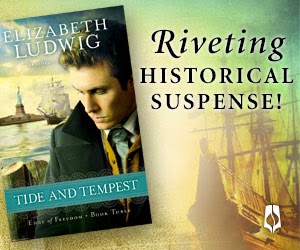Being a freelance editor has afforded me ample opportunities to see the kind of mistakes new and aspiring authors make—some not so serious, some fatal.
What do I mean by fatal? These are the kind of mistakes that get your manuscript rejected. So, in an effort to help you steer clear of the rejection pile, I’m going to list a few of the more common errors, along with a few helpful hints on how you can avoid making them again and again.
The biggest mistake I see involves Point of View (POV for short). New authors, especially, make the mistake of thinking their writing should emulate what they see on T.V.—scenes hopping from one to the next, jumping from one character’s viewpoint to another, sometimes in the same paragraph, etc. In a nutshell, POV is what one character thinks, feels, sees, hears, and smells. A general rule of thumb is to stay inside one character’s POV for the duration of a scene, only changing into a different POV after you have inserted a section or chapter break. After each paragraph ask yourself, is something my POV character can physically know or think? If the answer is no, check for a POV slip. Editors want to know that you have a firm grasp and understanding of POV.
Plot and structure holes are the second most common error I see. Think of your favorite movie. What did you like about it? Most likely, it involved a main character who sets out to achieve one major event or goal. Many things happen along the way, but the goal remains the same. From start to finish, the viewer is left wondering whether or not the main character will accomplish their goal. Take, for example, one of my favorite movies, The Princess Bride. In it, two characters, a boy and a girl, are separated from each other by circumstances neither of them can control. From the point of their separation on, the viewer wonders if they will somehow find their way back to each other. Events strive to keep them apart, but always, they struggle to come back together until the film’s final resolution.
Plotting is a difficult concept to grasp, which is why having a timeline is so beneficial. Before you even begin writing, I suggest you sit down and write yourself a detailed timeline, always keeping in mind who your main character is and what they hope to accomplish. This way, your story never strays far from the original plot.
A third major problem is the use of passive voice as opposed to active voice. Passive voice involves past tense and the main character viewing or observing events as they happen. Active voice is more immediate and involves the main character actually doing or saying something. Editors watch for the use of active voice, which is why grasping this concept is so important. Key word indicators to passive voice are ‘was’ and ‘had’ in all of their forms. Look at the following example:
Passive: She was glad to see him.
Active: She squealed with delight at the sight of him.
Both examples say she is happy to see him, but one involves immediacy and action.
Lastly, be sure to check your manuscript for things like word/phrase repetition, use of adverbs (or ly words, as I like to say), and incorrect punctuation and grammar before sending it in. Mechanics are importing in your writing, and editors want to know that you’ve taken the time to learn basic technique before they go deeper to check for a good story with a strong plot. If you’re not certain on the rules, invest in a good book—the Chicago Manual of Style for example, or Kathy Ide’s, Polishing the PUG’s.
You might even consider hiring someone to edit your book for you (what kind of freelancer would I be if I didn’t throw that in?) :-)
Seriously folks, as someone who has reaped the benefits of having my work professionally edited, I can tell you the things you will learn far outweigh the cost, and you’ll be able to take those tools with you and apply them to every future work.
So that’s it! Have fun, and start editing.
What do I mean by fatal? These are the kind of mistakes that get your manuscript rejected. So, in an effort to help you steer clear of the rejection pile, I’m going to list a few of the more common errors, along with a few helpful hints on how you can avoid making them again and again.
The biggest mistake I see involves Point of View (POV for short). New authors, especially, make the mistake of thinking their writing should emulate what they see on T.V.—scenes hopping from one to the next, jumping from one character’s viewpoint to another, sometimes in the same paragraph, etc. In a nutshell, POV is what one character thinks, feels, sees, hears, and smells. A general rule of thumb is to stay inside one character’s POV for the duration of a scene, only changing into a different POV after you have inserted a section or chapter break. After each paragraph ask yourself, is something my POV character can physically know or think? If the answer is no, check for a POV slip. Editors want to know that you have a firm grasp and understanding of POV.
Plot and structure holes are the second most common error I see. Think of your favorite movie. What did you like about it? Most likely, it involved a main character who sets out to achieve one major event or goal. Many things happen along the way, but the goal remains the same. From start to finish, the viewer is left wondering whether or not the main character will accomplish their goal. Take, for example, one of my favorite movies, The Princess Bride. In it, two characters, a boy and a girl, are separated from each other by circumstances neither of them can control. From the point of their separation on, the viewer wonders if they will somehow find their way back to each other. Events strive to keep them apart, but always, they struggle to come back together until the film’s final resolution.
Plotting is a difficult concept to grasp, which is why having a timeline is so beneficial. Before you even begin writing, I suggest you sit down and write yourself a detailed timeline, always keeping in mind who your main character is and what they hope to accomplish. This way, your story never strays far from the original plot.
A third major problem is the use of passive voice as opposed to active voice. Passive voice involves past tense and the main character viewing or observing events as they happen. Active voice is more immediate and involves the main character actually doing or saying something. Editors watch for the use of active voice, which is why grasping this concept is so important. Key word indicators to passive voice are ‘was’ and ‘had’ in all of their forms. Look at the following example:
Passive: She was glad to see him.
Active: She squealed with delight at the sight of him.
Both examples say she is happy to see him, but one involves immediacy and action.
Lastly, be sure to check your manuscript for things like word/phrase repetition, use of adverbs (or ly words, as I like to say), and incorrect punctuation and grammar before sending it in. Mechanics are importing in your writing, and editors want to know that you’ve taken the time to learn basic technique before they go deeper to check for a good story with a strong plot. If you’re not certain on the rules, invest in a good book—the Chicago Manual of Style for example, or Kathy Ide’s, Polishing the PUG’s.
You might even consider hiring someone to edit your book for you (what kind of freelancer would I be if I didn’t throw that in?) :-)
Seriously folks, as someone who has reaped the benefits of having my work professionally edited, I can tell you the things you will learn far outweigh the cost, and you’ll be able to take those tools with you and apply them to every future work.
So that’s it! Have fun, and start editing.













